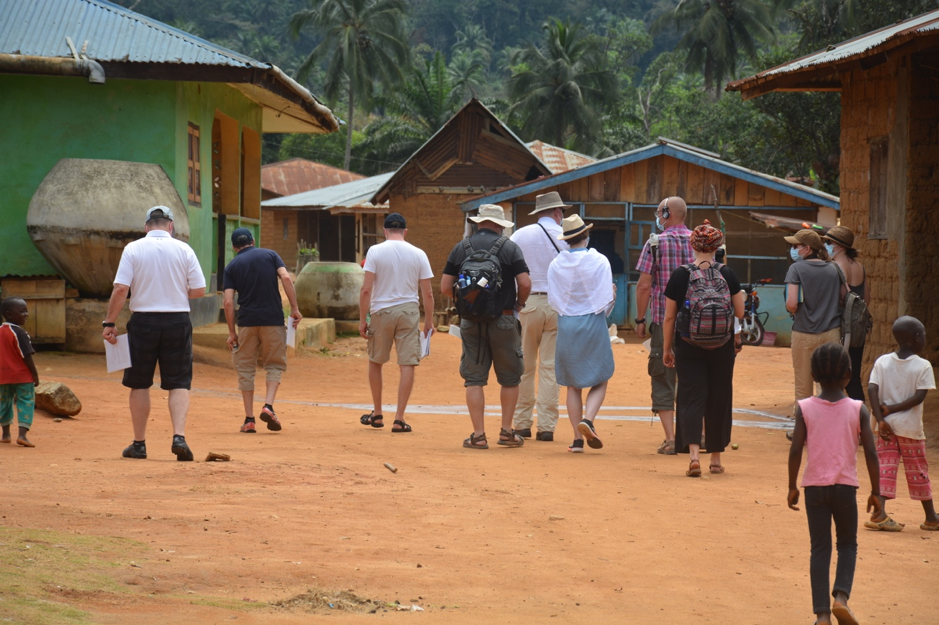
VOINJAMA, Lofa County – The trials of alleged war criminals taking place in the US and Europe became very real for villagers in Lofa County last week as the judge in the war crimes trial of Gibril Massaquoi in Finland arrived with prosecutors and the defense lawyer to see firsthand the scenes of atrocities alleged to have been committed by the former Revolution United Front commander.
By Lennart Dodoo, with New Narratives
The Finnish teams were very visible to curious villagers as they visited several towns and villages to corroborate facts and get firsthand information on horrific crimes mentioned in the indictment and see the places they are alleged to have taken place.
New Narratives agreed to prosecutors’ request not to name the towns and villages they visited because of credible fears that witnesses may be targeted for retaliation or intimidation.
Massaquoi, 51, is currently on trial in Finland for committing and inciting the murders of civilians and enemy fighters, rape and other human rights violations during the second Liberian civil war in the northern part of Liberia bordering Sierra Leone.
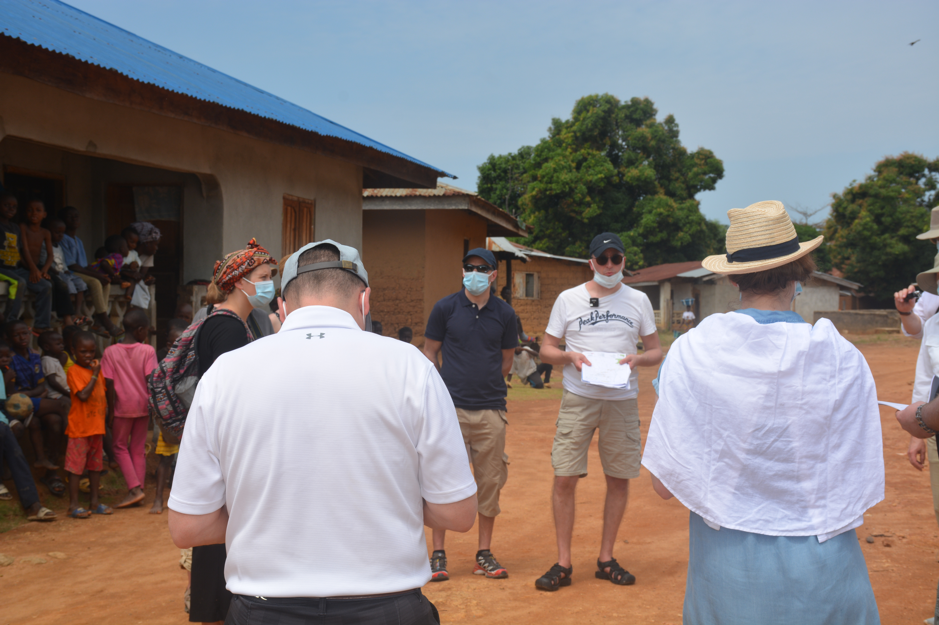
Massaquoi, a Sierra Leonean national, has lived in Finland since 2008 when he was granted residency in exchange for devastating testimony that he gave to the Special Court for Sierra Leone. Experts say Massaquoi’s testimony was instrumental in the conviction of former Liberian President Charles Taylor and other leaders of the Sierra Leone civil war. Massquoi was arrested in Finland in March last year after Swiss victims’ advocates Civitas Maxima working with Global Justice Research Project, alerted prosecutors to Massaquoi’s alleged crimes in Liberia.
One of the historic sites visited by the judges is a spot where 10 children were allegedly locked in a kitchen facility and burned alive. Today, a palava hut has been built on the spot in memory of the children. The women of the town use the palava hut as a market stall.
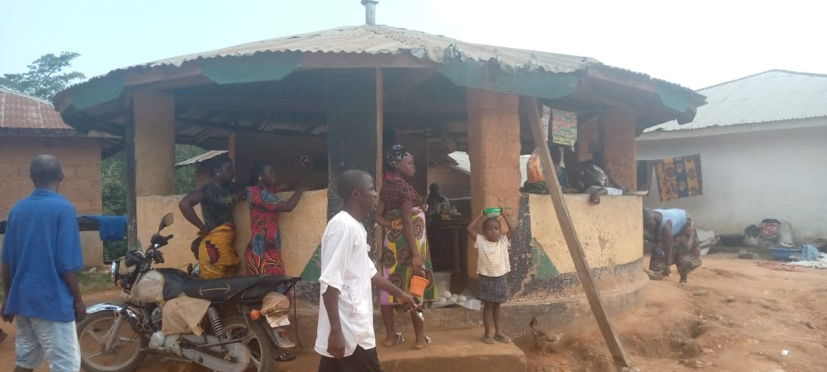
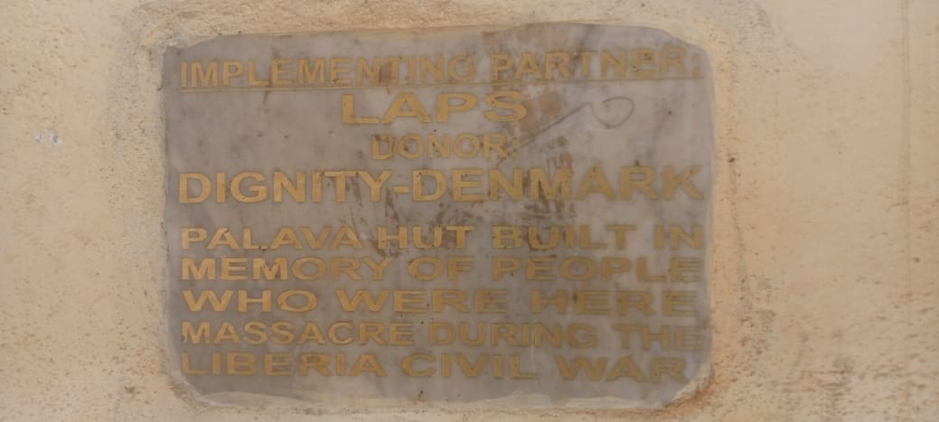
The judges, prosecutors and defense also saw a spot where about eight women were violently raped by the Massaquoi-led RUF rebels and murdered afterwards on his instructions. In some villages, he and his men are alleged to have cannibalized some of his victims after murdering them.
The state prosecutor, Tom Laitinen, made clear that the court process is an initiative of the Finnish government. The Liberian government permitted the Finnish team to conduct this investigation and the subsequent trial sessions that will take place over coming weeks, as part of bilateral agreements between Liberia and the European Union.
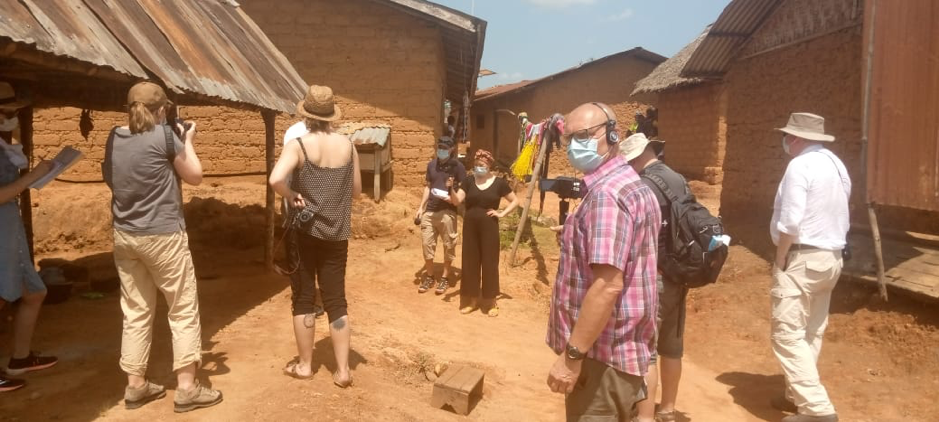
Thought other trials of perpetrators of war crimes in Liberia have taken place in Philadelphia and Switzerland, this is the first court to come to Liberia. Laitinen explained that such visits are common practice in the Finish justice system.
“The purpose is to show the court and for me also the places things happened, especially the things that we have included in our indictment,” he said.
“It is important to realize that this is all a Finnish Court which is we’re doing things according to the Finnish Legislation and our own legal tradition. So, in that sense, this is what we are used to doing back home.”
Laitenen said the visit to Lofa has helped the team to better understand the environment and circumstances under which the witnesses live.
“Distances between places, seeing the houses that are mentioned – everything comes together and helps to understand the case,” he said.
Laitinen told the small team of reporters traveling with the group that it was important that the judges, defense lawyer and prosecution traveled together, giving them all the opportunity to see and hear the same things.
“We do not discuss the case when we are here. We come from a system where cooperation is the key to many things and so by cooperating and by understanding and by respecting our different professions, we all come together to perform the trial – that is the only key to make this possible,” the prosecutor said.
The Finnish judges are expected to begin hearing witnesses on Monday with over 60 witnesses, some of who are ex-fighters would be providing testimonies to the court.
This story was a collaboration with New Narratives as part of the West Africa Justice Reporting Project.
